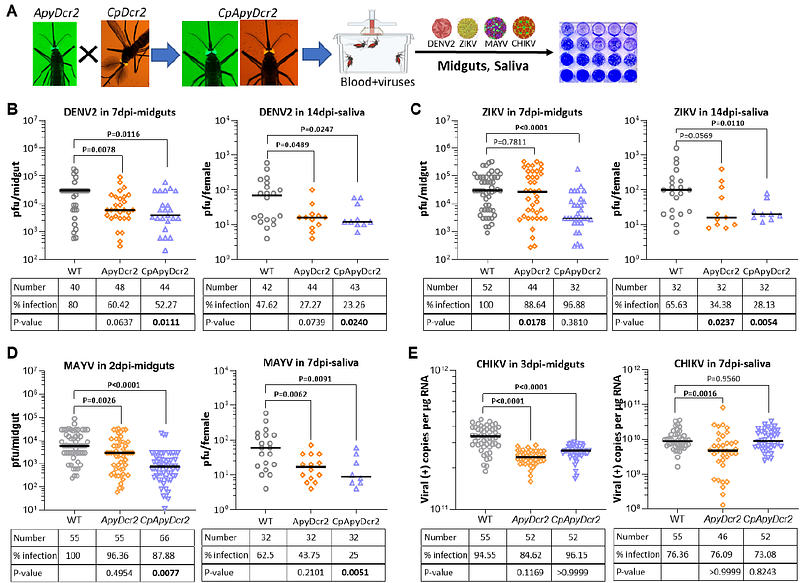Enhancing Tissue-Specific Antiviral Immunity to Disrupt Arbovirus Transmission by Mosquitoes

Enhancing Tissue-Specific Antiviral Immunity to Disrupt Arbovirus Transmission by Mosquitoes
Dong, S.; Ciomperlik-Patton, J.; Zhao, Y.; Dong, Y.; Myles, K. M.; Dimopoulos, G.
AbstractArboviruses, including dengue virus (DENV), Zika virus (ZIKV), and chikungunya virus (CHIKV), pose a significant global health and economic burden, with Aedes aegypti serving as their primary vector. Arbovirus infection in Ae. aegypti progresses sequentially through the midgut (MG), carcass (CA), and salivary glands (SG), with each tissue exhibiting distinct antiviral responses. Here, we investigate tissue-specific antiviral mechanisms, focusing on the small interfering RNA (siRNA) pathway in SGs. Our results reveal that SGs possess weaker antiviral defense and are more susceptible to arboviral infection compared to MGs and CAs. Notably, overexpression of Dicer2 (Dcr2), a key component of the siRNA pathway, in SGs leads to a significant decrease in arboviral replication. Conversely, Dcr2 overexpression in fat bodies, the primary tissue in CAs, only moderately suppresses DENV2 infection and has no notable effect on Mayaro virus (MAYV) infection. Remarkably, the simultaneous overexpression of Dcr2 in both MGs and SGs enhances antiviral activity, effectively blocking the transmission of multiple arboviruses. These findings reveal the tissue-specific dynamics of mosquito antiviral immunity and underscore the potential for targeting SG-specific immunity to disrupt arbovirus transmission, providing a promising approach for controlling mosquito-borne diseases.